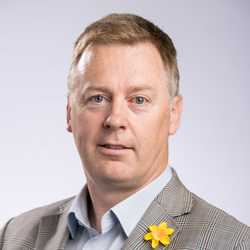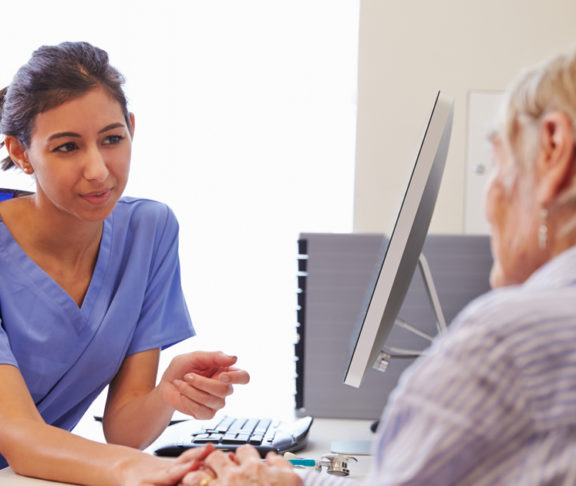
Dr Robert O’Connor
Director of Research, Irish Cancer Society
One in two of us will have a cancer diagnosis in our lifetime and cancer is the leading cause of death in Ireland, but there is a lot we can do to help prevent this outcome.
While prevention is clearly important, everyone is at risk of developing cancer. Detecting cancer early gives the best opportunity for a good outcome if we are diagnosed. So what can we do to help ensure the best outcome?
Looking out for signs and symptoms
It is important to be aware of your body and if you notice any unusual change in how your body works, talk to your doctor. The chances are it will not be cancer but getting it checked is not a waste of anyone’s time, and it could even save your life.
Some of the signs you should check with a doctor:
- A lump or swelling
- Bleeding that is not normal for you
- Unexplained weight loss or prolonged tiredness or fatigue
- Pain that does not go away after three or more weeks
- A persistent cough, changes in your voice, hoarseness that lasts longer than three weeks or feeling short of breath (most especially if you smoke)
- A sore or bruise that does not heal
- Difficulty swallowing, ongoing indigestion or heartburn
- A mouth or tongue ulcer present for three weeks or more
- A change in your bowel or bladder habits, persistent bloating, constipation, diarrhoea or problems passing urine for more than three weeks
- A new mole or change in shape, size or colour to an existing mole
- Any change in your breast- many breast cancers, especially in younger women do not present as a ‘lump’
Together the person and their cancer team can weigh the benefits and risks of each cancer treatment to determine which is best for them.
Getting treatment and support
Cancer treatment is a complex process that differs from person to person and we are fortunate that our cancer doctors and healthcare professionals have world-class training. On diagnosis, the person will meet with their oncology team (cancer team) and an individualised treatment plan will be devised.
Treatment options depend on several factors, such as the type and stage of cancer, person’s general health and preferences. Together the person and their cancer team can weigh the benefits and risks of each cancer treatment to determine which is best for them.
Receiving a cancer diagnosis is a very worrying time. It is normal to feel overwhelmed and confused. Talking with your doctor/cancer team and learning all you can about your diagnosis and your treatment options can help. The Irish Cancer Society provides a range of supports for anyone impacted by cancer, be they patient or family members.
The Irish Cancer Society Support Line is here to help with advice and information on cancer.
Speak to a dedicated cancer nurse on Freephone 1800 200 700 or email [email protected]

